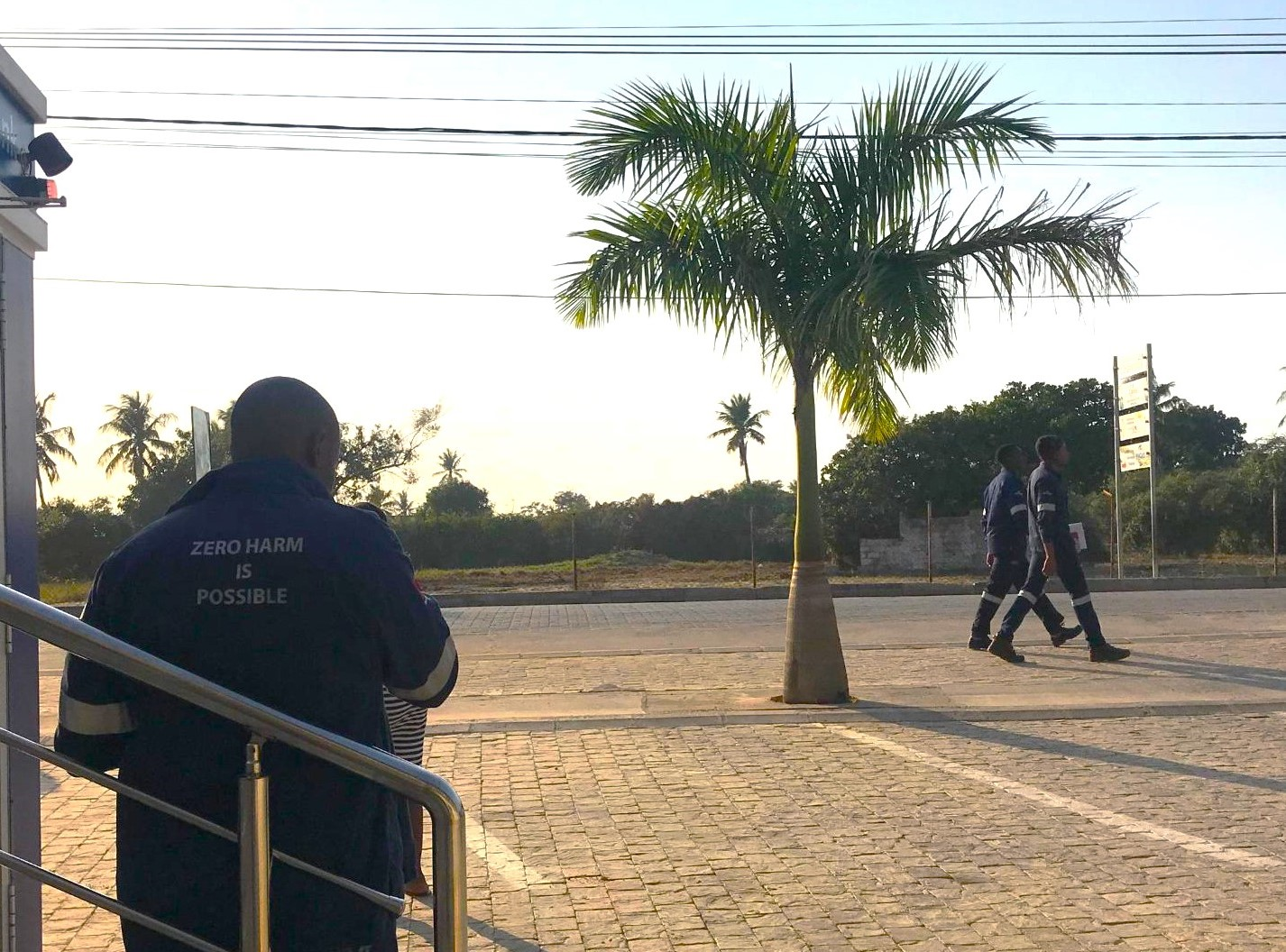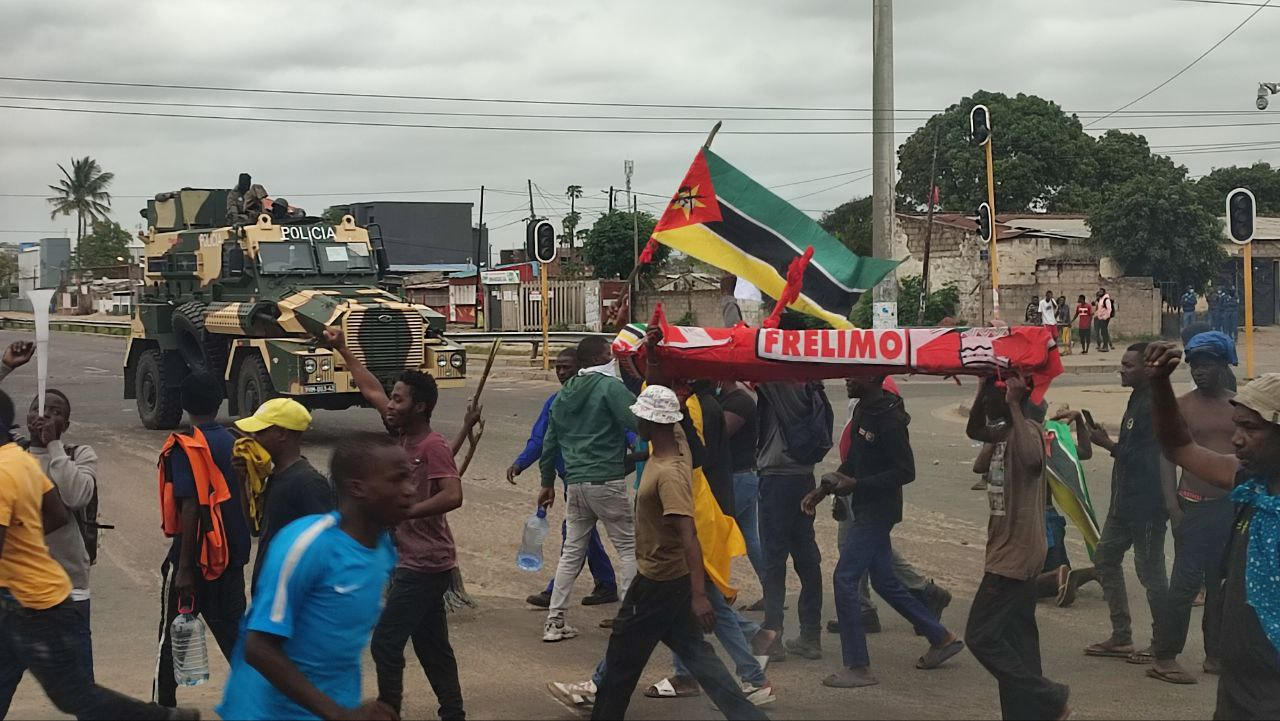By Eloïse Bodin and Mathilde Schoenauer Sebag
Eloïse Bodin is an independent environmentalist, working on issues related to sustainability policies.
Mathilde is a doctor in material science, she wrote and directed a radio documented fiction on extractivism told by atoms, called 'rocks also die' (les cailloux meurent aussi).
Both are based in Europe but spent July-August 2023 in Mozambique, conducting research on the geopolitical dimension of resource extraction.
Their trip to Mozambique was supported by the Bureau Internationale Jeunesse.
Mozambique’s soil is a treasure trove of mineral resources: coal, semi-precious stones, bauxite, gold, tantalum, heavy sands, and gas, to name but a few. And around the world, the last century has witnessed unprecedented levels of resource extraction. Research shows an increase in materials extraction from 22 billion tonnes in 1970 to 70 billion in 2010, and the global extraction of metal ores doubled over the past two decades.
Mozambique has pinned its hopes on gas more than any other, and is poised to become the world’s fourth-largest gas exporter. Current geopolitical tensions with Russia have pushed any alternative supplier to the forefront, in a world where gas is often described as a relatively clean source of energy, with a role to play in the global transition to decarbonisation. So logically, anyone today with gas in their backyard should be rich.
But they might not be if they live in the area of Vilanculos, in Inhambane province. This region is one of those affected by the dash for gas, a global epidemic irreversibly affecting the population and the environment.
Sasol is a South African company that has been exploiting gas in the Vilanculos region for 20 years. It considers Mozambique “the heartland of its upstream operations” and as a strategic partnering country, thanks to the rich gas reserves in the area.
One benefit that some Vilanculos residents do get, is the development of businesses and public infrastructure in the area. But that also brings its own risks.
As we walked down from the central market to reach the seashore, we heard a whistling sound, preceded by a strong smell of gas. It was coming from a distribution terminal. “This is a leakage. It has been going on for more than a year now”, a neighbour explained. Next to the terminal, he pointed to the consequences of that leakage: the adjacent compound had been abandoned, and a couple of trees had died. “This is related to the presence of sulphur,” the neighbour said. A sulphur-based substance, also known as ethyl mercaptan, is indeed added to kitchen gas in order to give it a smell and to ease its detection. But it can also be toxic for plants. As this article was being written, that leakage had just been fixed.
Vilanculos, once a thriving tourist destination, has witnessed a decline in tourism, mainly due to the COVID-19 pandemic. Meanwhile, large-scale overfishing, predominantly by Chinese fishing companies, has made it exceedingly difficult for local fishermen to survive. Between a declining tourism industry and empty oceans, employment offered by Sasol is a potential lifeline.
The reality, however, is far from meeting local aspirations. While Sasol does offer employment opportunities and advantages for their employees such as providing company cars or access to private health centres, locals complained that most of the best-paid jobs created by gas operations in the region, whether by Sasol or its subcontractors, are filled by expatriates, often South Africans. As a result, tourist accommodations end up being fully booked, crowding out the tourism industry, as testified to by lodge owners we spoke to. Meanwhile, Mozambican workers are left with lower-paying positions. A Sasol spokesperson said the vast majority of Sasol’s senior management in Mozambique are locals, but that several expatriates are currently involved with the construction of the company’s new project there, employed by subcontractors.
The perceived disparities have led to frustration among the local workforce, who sometimes joke that the company’s name is an acronym for "Stay And Suffer Or Leave." Adding to the dissatisfaction, salaries are often not paid on time, we were told. Sasol denied this claim. In terms of workers' health, Sasol employees benefit from access to company health centres. But employees of other subcontracting companies, unable to access these centres, turn to public centres, which quickly reach capacity.
Calisto Bila of ACOORD, a civil society organisation that aims to improve dialogue between the population, Sasol, and the government, told us he had witnessed an improvement in communication between these stakeholders since the beginning of Sasol’s activities. Sasol representatives first used to not even show up at the meeting.
In order to show they take the issue of relations with the local population seriously, the company has recently decided to commit $10 million for the local population. Some was used for a consultancy programme, Bila said, adding that the local population is still looking forward to seeing the results of this expenditure. Meanwhile, local residents find themselves facing the harsh consequences of this growing sector, including displacement and resettlement into housing often described as bad by people we spoke with both in civil society and within Sasol, which exacerbates already precarious living situations.
What should change?
Opinions among civil society are divided, with some calling for clearer tax rules, and others for direct access to gas for all. 60% of Mozambicans still do not have access to electricity, and only 5% of the population is connected to a gas distribution network. And even if it were, their gas would be imported: the country’s first refinery for liquid petroleum gas (LPG), or cooking gas, is due to start operating in Temane in 2024, 24 years after Sasol signed for the exploitation of gas in the Pande and Temane fields. It should meet 70% of the country’s demand, the minister of mineral resources and energy, Carlos Zacarias, said in August 2023.
Most of the gas produced in Vilanculos is exported through a pipeline to Sasol’s industrial facility in Secunda, South Africa, the world’s biggest single greenhouse gas emitter. But increasing amounts are used in Mozambique to generate electricity.
Around 450MW of power generating capacity in Mozambique currently runs on Vilanculos gas. That uses around 14 million gigajoules of gas per annum (mGJ/a), or 7% of the 196 mGJ/a annual production capacity. That consumption should however double when the Central Termica de Temane (CTT) opens next year. The more Mozambique can use its own gas, the better, since the price that Sasol pays for Mozambican gas is indeed low. “Sasol paid less for the gas in Mozambique than it paid in taxes to the South African government on the same gas it provided on the other side of the border,” according to a 2020 academic study.
“In the contract, part of the tax the company pays is in gas, which should be used by the government for domestic industry”, adds Rui Mate, economist and researcher at the Centre for Public Integrity (Centro de Integridade Pública, or CIP).
But since Mozambique lacked infrastructure when the deal was signed, the 5% of the gas that national oil company ENH (Empresa Nacional de Hidrocarbonetos) was entitled to was exchanged for cash instead of being directly used by the country. Now that the country is extending its infrastructure to produce electricity, the paradigm is also shifting.
Local and global impacts
The gas industry’s damaging effects on both people and the environment are often indirect and invisible. “Natural” gas is frequently hailed as a cleaner and more environmentally friendly energy source when compared to coal and oil. It emits fewer greenhouse gasses when burned, contributing to the perception that it’s a greener alternative. This source of energy is considered by some as an essential component of the transition to a low-carbon energy future.
However, recent studies have shown that methane leakages from the natural gas supply chain can have a significant global warming impact and make it as polluting as coal production, depending on the extracted/leakage ratio. The benefits of reduced CO2 emission during combustion can be offset by the methane emissions from leakages along the supply chain.
No matter how much energy is put into minimising the risks and the impacts, the gas industry will always be a business with high environmental global impacts, but also with consequences for local populations.
Mozambique is sitting on a gaseous treasure. But while gas production may promise short-term gains, it comes with numerous social and environmental consequences. The benefits for local communities are often limited; the trickle-down theory has never been further from the truth. The situation is not simple — and nor are Mozambique-South Africa relations — but until Mozambique reaches technological and economical sovereignty and until decision-makers are aiming at an improvement of living conditions, gas will remain a burden for most of the human beings in the Vilanculos region.









